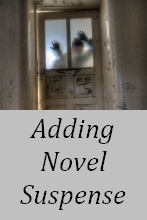Grow Into the Role
By: Ken Brown
Published: 3/22/2021
Nobody is Born a High Flyer, you have to GROW into the ROLE.
Do you want to be a great writer? I think most of us when we decide to write a novel and really convince ourselves to finish the project, we expect instant success. We know our work is like James Patterson, Stephen King, George RR Martin, JK Rowling and Sue Grafton novels, only better. Once that first person reads our book there will start a wave of excitement and acclaim over its contents that the desire to read it will reach Tsunami levels making us instant millionaires.

An Eagle feeding its Newly Hatched Eaglet
Don't pretend you haven't thought that at least once in your writing career. Let's face it, we all hope for it, but it's illusive to most of us.
I suggest a better way to see your author career. Imagine you are an eaglet. Today's the day you hatch out of your shell. You aren't full grown. You can't fly. You can't catch a fish. You can't fly out of the path of danger. In fact, you can't even hold your head up straight for more than a second or two and require your parents to feed you.
If you have one book published you're like that eaglet, barely a day old. Your first book may only sell to friends and family. You haven't created a network of super fans. You don't have a newsletter list of eager, ravenous readers anxious for you to finish your next book and ready to consume everything you write. You may not know how to market, how to create a cover or even how or where to publish your novel.
I Want to Give You Hope.Just because today you're a newborn eaglet, doesn't mean you won't become a high-flying, white-headed eagle someday. But you have to grow into the role.
You grow into the role of professional writer by following these steps.
- Writing Everyday or Consistently
- Studying the Craft of Writing
- Finding an Editor that You Can Work with
- Learning to Market Your Novels
You may not like to hear that phrase, "you should write everyday." But the truth is, to learn to do anything well requires consistent practice and work towards understanding and mastery over the task. I completed the third book in my series in six weeks, but I won't lie to you. I did NOT write everyday. No, I purposely chose to take the weekends off, because that was the kind of writer I wanted to be. Work five days a week and take off two days to re-charge and spend time with my family.
If you are working a full-time job, you may not have the luxury of writing six to eight hours a day five-days a week. Your best chance to write many words a week might require you to write an hour in the morning, another hour before dinner and then a final hour or two after everyone goes to bed in your house. You may choose to put in another four to six hours on Saturday and Sunday. You have to find what works best for you, but I suggest you'll be happier and a better writer if you are writing consistently day in and day out.
Studying the Craft of WritingThere is a lot to know about the craft of writing. You should learn about the three act structure, building suspense, grammar, foreshadowing, outlining, editing, show versus tell, POV and many more craft skills that will make you a better writer. Are you writing in first person or third person? Are you sticking to one point-of-view character or many POV characters? How good are you at making sure there is only one point-of-view per chapter or section of a chapter? Many writers struggle with this and even when they get it right, they don't realize that they are sneaking omniscent POV into their writing.
Great writers study the craft one to three hours per week and beginning writers should strive to study more than that.
Finding an Editor that You Can Work withI made the mistake on my first novel to decide that my beta readers would be my editors. They did a great job, but they weren't editors and the book suffered because I chose not to use an editor for that novel. I plan to have the book reviewed by a professional editor in a year or so. The rest of my novels I schedule time in the writing process to have an editor review it and offer corrections to grammar, language usage, names, descriptions and strong verbs. My second book was so bad it took my editor six-weeks to complete the editing of it. Yowsa. I need to study the craft of writing some more.
Learning to Market Your NovelsEven after creating the best novel you can write, having it professionally edited and getting it published, you may still not sell a single book. There's a final step in the process. You must learn to market your book. Even if you are traditionally published, the publisher is expecting you to play a role in advertising and marketing your novel.
Marketing may come in the form of your own website, a social media presence on Twitter, Facebook and/or Instagram and maybe even spending money for ads on Facebook, Amazon, Kobo, Barnes and Noble, Bargain Booksy or Fussy Librarian, or to spend money and time doing a blog tour. You may not have the money or time to do all of these marketing tasks, but you need to know about them and plan out your marketing campaign.
Will you choose to create your own newsletter to send out to your fans?
Grow into the RoleDon't be scared by all these tasks and the potential to spend money on all of them. You're like an eaglet. You start out small. You learn a few things and write your first novel. You try to find an agent and publisher or you decide to self-publish. Then you might find someone to edit your book and someone else to create the book cover. When that first book is published you're really no more than an eaglet that has learned to jump out of the nest and spread its wings. It's not really flying, it just had a successful attempt at flying.
You'll get better and more efficient on book two and three. You might even like the process by book four. A bald eagle's head feathers don't turn white until they are four or five-years-old. Sure, they're flying and catching their own fish and traveling hundreds of miles every year. But they won't be considered an adult eagle until the head feathers turn white. Each day they are improving, learning and growing into the role.
Become a professional author, grow into the role.
Cheers. Remember to Write Everyday. Ken.



